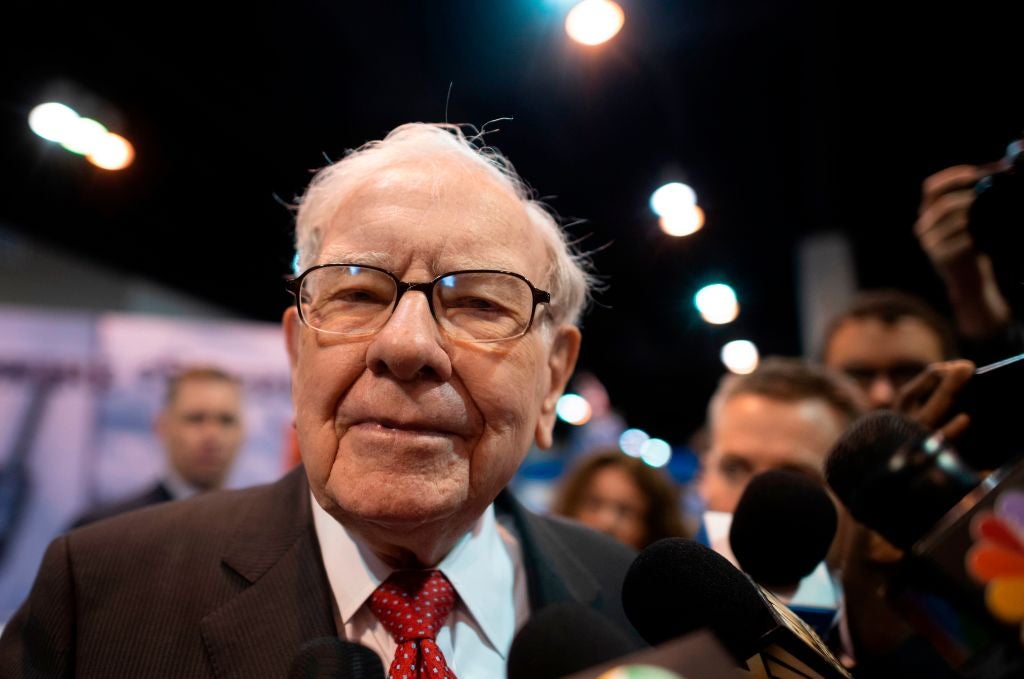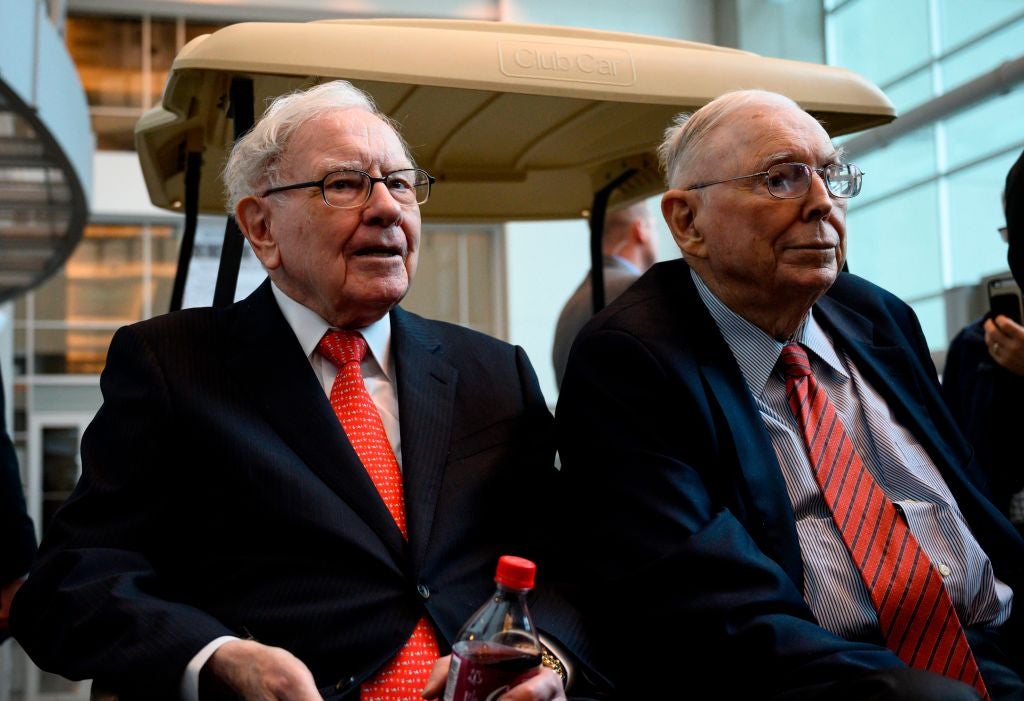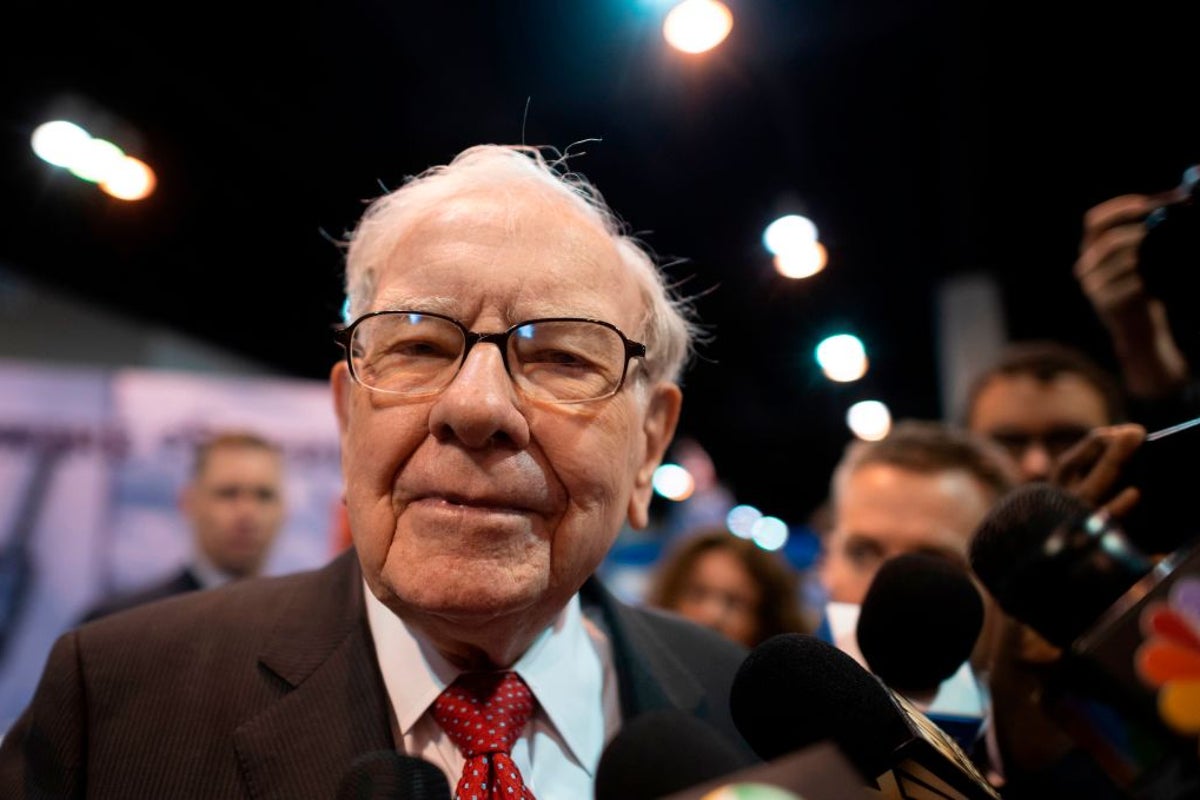Warren Buffett is seen by many as the greatest investor of a generation, quite possibly ever. It’s not without reason either – his Berkshire Hathaway company has returned around double that of the wider American market, on average, every year since 1965.
He invests in the stock market in a huge range of other businesses through Berkshire, which itself is now worth a trillion dollars (£790bn) – and has a cash reserves pile which at the end of last year amounted to a massive $334.2bn (£264.2bn).
To put that number into some sort of everyday context, consider some high-profile names involved in big-money headlines over the last year in the UK: Jim Ratcliffe buying a stake in Manchester United last year valued the entire club at around £5.2bn. Chancellor Rachel Reeves later spoke about a £20bn black hole in UK public finances which necessitated changes to tax income and spending. And the value of the biggest company on the London Stock Exchange, AstraZeneca, is worth about £180bn by market capitalisation.
The cash Berkshire has available is more than all of those values combined, let alone what it already owns.
94-year-old Buffett can pretty much buy most companies if he wants, or at least shares in them, but the world’s sixth-richest person isn’t seeing a whole lot out there he wants right now – at least, according to his principles of investing, at the valuations he would be tempted by.
In fact, Buffett – or Berkshire rather – has been a net seller of stocks and shares for nine consecutive quarters, a process which has included selling billions of dollars worth of Apple and Bank of America, among others. At the end of 2024 the biggest holdings in the company portfolio remained the aforementioned pair along with American Express, Coca-Cola and Chevron.

There has been suggestion part of this strategy was to lock in profits at lower tax rates, rather than an overall lack of confidence in any particular business.
The cash pile of Berkshire grew by $9bn (£7.1bn) in the fourth quarter of 2024 – that’s bigger than the entire size by market capitalisation of Marks and Spencer or Admiral Group in the UK stock market.
And Buffett has explained why he hasn’t deployed that back into the stock market – saying there are too few interesting opportunities at present, at least on American soil.
“Often, nothing looks compelling; very infrequently we find ourselves knee-deep in opportunities,” Mr Buffett said in his annual letter to Berkshire shareholders, alongside the company’s latest financial update.
“Despite what some commentators currently view as an extraordinary cash position at Berkshire, the great majority of your money remains in equities.
“That preference won’t change. While our ownership in marketable equities moved downward last year from $354bn to $272bn (£280bn to £215bn), the value of our non-quoted controlled equities increased somewhat and remains far greater than the value of the marketable portfolio.”
He further added: “Berkshire shareholders can rest assured that we will forever deploy a substantial majority of their money in equities, mostly American equities, although many of these will have international operations of significance.”
Buffett offered two further interesting nuggets in money-related matters, and one on the matter of his eventual succession.

The billionaire said “it won’t be long” before Greg Abel, 62, vice-chairman at Berkshire, replaces him as chief executive. Buffett’s long-term business partner, Charlie Munger, died a little over a year ago at the age of 99.
Additionally, the Berkshire report showed an income of $11.6bn (£9.2bn) of interest earned, largely from holding Treasury bills – shorter term version of bonds – which was noted as a “predictable large gain in investment income as Treasury Bill yields improved and we substantially increased our holdings of these highly liquid short-term securities.”
Buffett also said that Berkshire would continue to grow their holding in Japanese positions increase and be held “for many decades” even after he transitioned out of the leading role.







